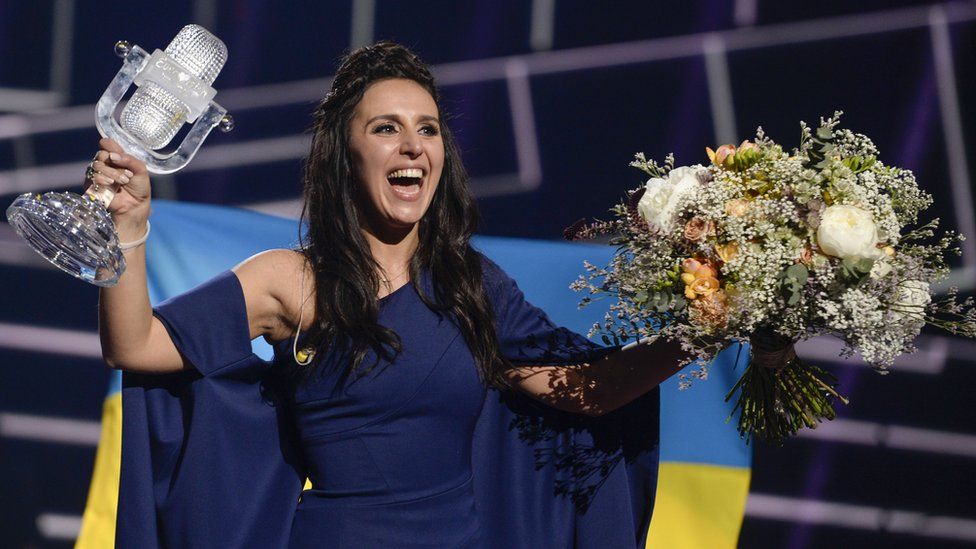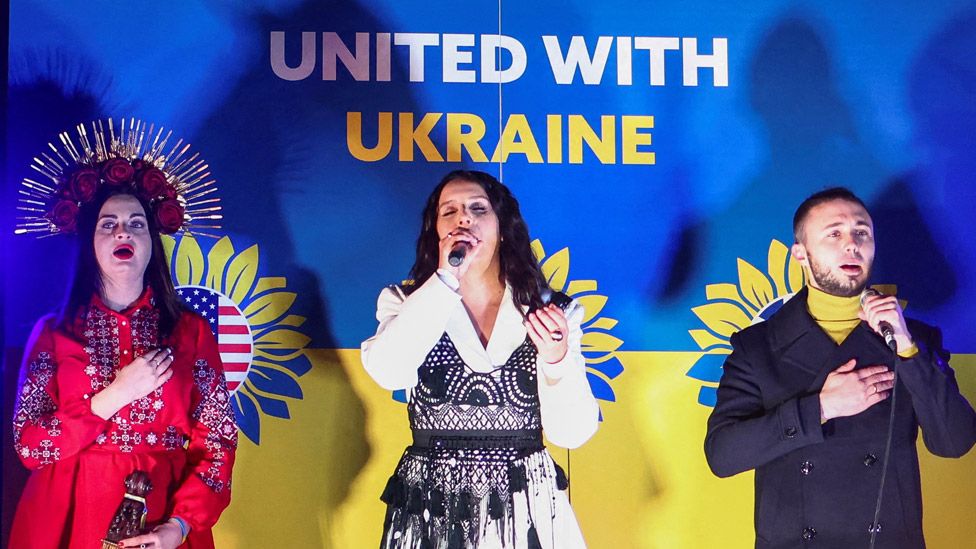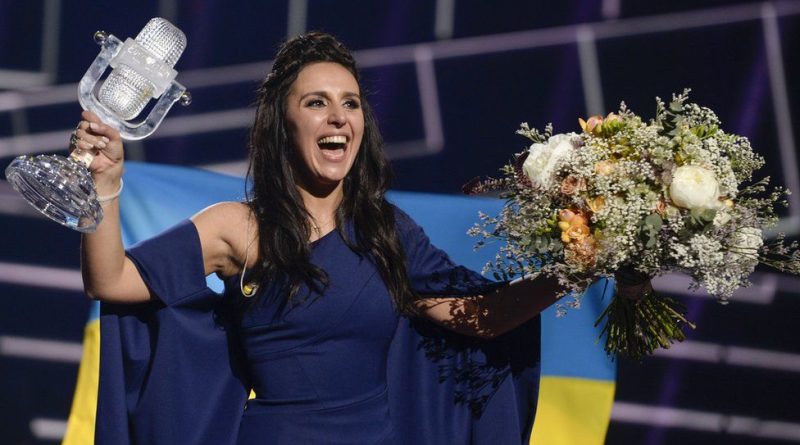Russia Places Ukrainian Eurovision Winner Jamala on Wanted List Amid Political Tensions
In a surprising turn of events, Susana Jamaladinova, the 40-year-old Ukrainian Eurovision winner known professionally as Jamala, has found herself on Russia’s wanted list, according to state news agencies RIA and TASS. The Ministry of Internal Affairs in Russia has accused Jamala, of Crimean Tatar origin, of discrediting Moscow’s army. The singer, a vocal critic of Russia’s occupation of Crimea and invasion of Ukraine, won the Eurovision Song Contest in 2016 with her poignant song “1944,” shedding light on the deportation and ethnic cleansing of around 200,000 Crimean Tatars by Soviet authorities in May 1944.

Background on Jamala’s Eurovision Victory:
Jamala’s triumph in the Eurovision Song Contest marked a significant moment in the competition’s history. Her winning entry, “1944,” not only showcased her powerful vocal prowess but also addressed a dark chapter in the history of the Crimean Tatar people. The song’s emotional resonance and historical significance resonated with audiences, earning her the top spot in the competition.
Political Criticism and Moscow’s Response:
However, the victory was not without controversy, as “1944” was interpreted by some as a thinly veiled critique of Russia’s actions in Crimea and Ukraine. Moscow’s subsequent decision to include Jamala on its wanted list and her arrest in absentia by a Russian court in November further intensified the political tensions surrounding the artist. The accusations of discrediting Moscow’s army underscore the deeply rooted political implications associated with Jamala’s artistry.
Jamala’s Activism and Response:
Jamala’s activism against Russia’s actions in Crimea has been a consistent aspect of her public persona. The singer’s dedication to raising awareness about the historical injustices faced by the Crimean Tatar people has not gone unnoticed. Currently on a fund- and awareness-raising tour in Australia, Jamala responded to the news of her wanted status with a post on Instagram. In a story shared from outside the Sydney Opera House, she included a facepalm emoji, suggesting a mix of frustration and incredulity at the developments.
The Historical Context of “1944”:
To comprehend the full scope of Jamala’s impact, it is crucial to delve into the historical context of her Eurovision-winning song. “1944” delves into the tragic events of the mass deportation and ethnic cleansing of Crimean Tatars by Soviet authorities during World War II. By addressing this historical injustice on an international platform like Eurovision, Jamala not only secured victory but also brought attention to a historical narrative that had long been overlooked.
Russia’s Political Maneuvering:
The inclusion of Jamala on Russia’s wanted list adds a layer of complexity to the ongoing political tensions between Ukraine and Russia. The move signifies a broader effort by Moscow to control the narrative surrounding Crimea and Ukraine, silencing voices that challenge the official stance. By targeting an artist known for her activism and use of music as a means of political expression, Russia is sending a clear message about its intolerance for dissenting views.
International Response and Solidarity:
As news of Jamala’s wanted status spreads internationally, it has sparked reactions from supporters and human rights advocates. The targeting of an artist for expressing political opinions through art raises questions about freedom of expression and artistic liberty. Organizations and individuals globally may view this as an attempt to stifle dissent and discourage artists from engaging with politically sensitive topics.
Impact on Eurovision’s Political Neutrality:
The Eurovision Song Contest has long been celebrated for its emphasis on music and cultural exchange, ostensibly free from political undertones. However, incidents like Jamala’s inclusion on Russia’s wanted list highlight the challenge of maintaining political neutrality in an environment where artists are inevitably entangled in geopolitical issues. The controversy surrounding Jamala’s victory and subsequent treatment by Russia raises questions about the extent to which art and politics can be disentangled on such global stages.
The Power of Artistic Expression in Activism:
Jamala’s journey from Eurovision triumph to being wanted by Russia underscores the power of artistic expression in activism. Her ability to use music as a tool for raising awareness and advocating for historical justice has positioned her as a symbol of resilience and defiance. The repercussions she now faces also highlight the risks artists take when engaging with contentious political issues.

Conclusion:
As Jamala continues her tour in Australia, the unfolding events around her wanted status bring attention not only to the ongoing tensions between Ukraine and Russia but also to the broader issues of artistic freedom, political activism, and the intersection of art and geopolitics. In a world where artists increasingly find themselves at the center of political controversies, the case of Jamala serves as a reminder of the complexities and challenges inherent in using creative expression to confront historical injustices and advocate for change.

![Ashraf Amra/Anadolu Agency]](https://trendingcon.com/wp-content/uploads/2023/11/AA-20231129-33060324-33060322-HAMAS_HANDS_OVER_ISRAELI_PRISONERS_TO_RED_CROSS_OFFICIALS-1701322436-390x205.webp)

